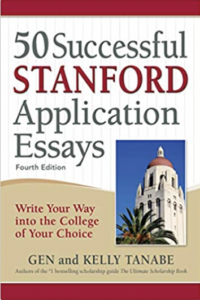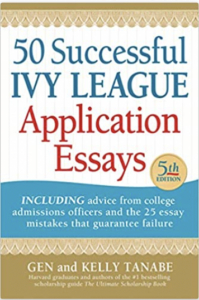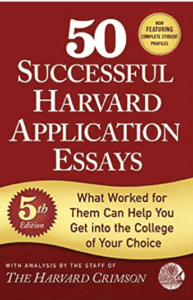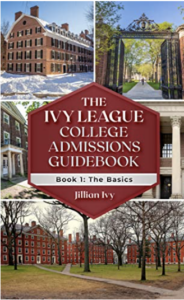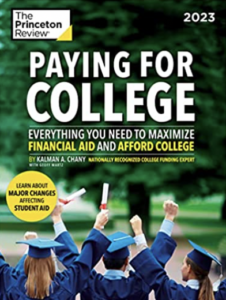The Ivy League College Admissions Guidebook!
The Ivy League College Admissions Guidebook
www.CollegeAdmissionsGuidebook.com
A Review of “The Ivy League College Admissions Guidebook”
Introduction
Attending an Ivy League college like Harvard, Princeton, Columbia, Brown or UPenn is a dream for many students, and getting accepted to an Ivy League university is often seen as the pinnacle of academic achievement. The journey to these prestigious universities, however, is no easy feat. To aid aspiring students in this endeavor, “The Ivy League College Admissions Guidebook” stands as a beacon of college admissions wisdom and guidance.
Written by a former Harvard admissions interviewer and a Harvard graduate, this comprehensive college admissions guide, available now Amazon, offers invaluable insights and strategies to navigate the complex and competitive admissions process of getting in to an Ivy League college.
Unveiling the Treasures Within
“The Ivy League College Admissions Guidebook” is more than just a collection of college application tips however; the book is a wellspring of knowledge that provides a roadmap for students to present themselves in the best possible light to admissions committees. The book combines expert advice with real-life examples, giving readers a holistic view of what it takes to stand out in a sea of qualified applicants.
Understanding the Admissions Landscape
The admissions landscape of Ivy League institutions is ever-evolving, and this guidebook recognizes that — it’s no longer good enough just to have a 4.0 GPA or score above 1520 on the SAT. You need to understand what makes you stand out and look unique and interesting to admissions. This book does that and begins by demystifying the entire Ivy League admissions process: breaking down each component – from SAT and ACT scores to extracurricular activities, letters of recommendation, and personal essays including the Common App essay and each school’s supplementals.
By understanding the critical factors that admissions committees consider, readers are empowered to strategically plan their college application journey.
Crafting a Compelling Narrative
One of the standout features of this guidebook is its emphasis on storytelling. Admissions officers seek students who bring diverse perspectives and experiences to their campus. They want “interesting”. They want students who will be the voice of the next generation.
This book delves into the art of crafting that compelling personal narrative, helping students connect their passions, achievements, and ambitions into a cohesive and engaging story that will resonate with admissions officers and help them succeed in their goal of getting in to the school of their dreams.
Mastering the Application Essays
The application essays are often the most daunting aspect of the admissions process, and the author is aware of that, as well, offering excellent tips and advice. “The Ivy League College Admissions Guidebook” offers a step-by-step approach to tackling the college application essays, with practical tips on brainstorming topics, drafting, revising, and polishing. The book illustrates the power of authenticity and uniqueness in capturing admissions’ attention.
Building a Standout Profile
In the era of extremely competitive admissions, academic excellence alone may not suffice. The guidebook delves into the significance of extracurricular activities, community involvement, and leadership experiences. It offers guidance on how to strategically choose and immerse oneself in activities that align with one’s passions and demonstrate a genuine commitment to personal growth and academic impact.
Navigating Standardized Tests
Standardized tests play a crucial role in the admissions process too, and this guidebook recognizes their importance. It provides valuable insights into preparing for the SAT or ACT, including test-taking strategies, study plans, and advice on when to take the tests for optimal results…or, maybe not submitting scores at all. By helping students approach these exams with confidence, the book contributes to a well-rounded application.
In Conclusion
“The Ivy League College Admissions Guidebook” is not just a guide; it’s a mentor, a confidant, and a source of inspiration for ambitious students striving to make their mark in the world of higher education. With its approach to navigating the admissions process, and the Ivy League college admissions process in particular, expert insights, and relatable stories, this guidebook equips readers with the tools they need to present themselves authentically and impressively to the Ivy League college admissions committees whether you’re trying to get into Harvard, Dartmouth, or any of the other Ivy League, or Ivy League equivalent schools like Stanford or MIT.
Aspiring students can find this invaluable resource today on Amazon, setting them on a path toward realizing their dreams of getting in to the Ivy League and achieving the goal of their dreams!
Interesting in getting more help with your applications? I’m a former Harvard interviewer + a Harvard grad and am the author of this book! Contact me today for a free consultation as I work with students all over the world, helping students get into the Ivy League!
Schedule your FREE consultation today!
Check out my other related Ivy League admissions posts, as well:




